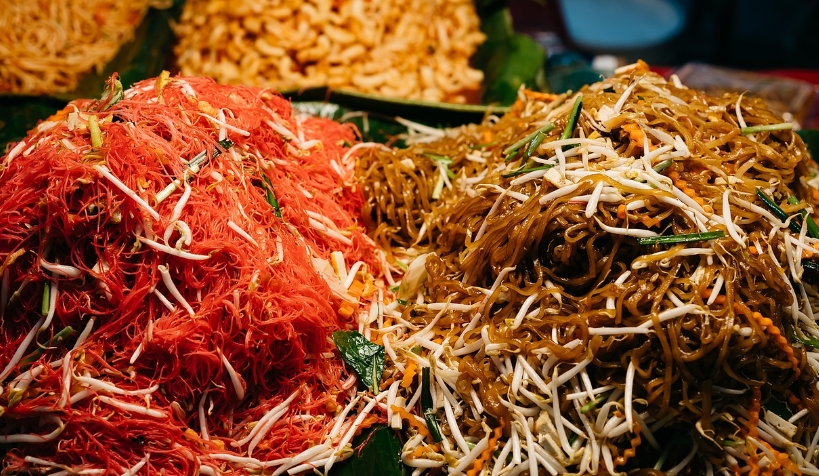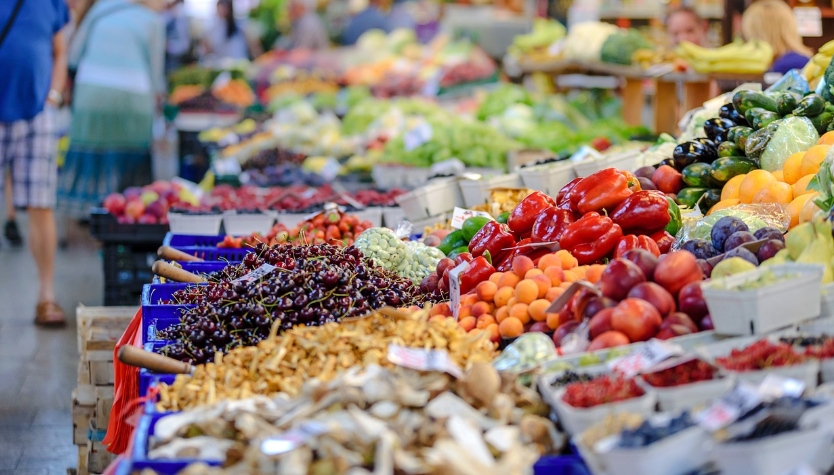Local Delights: The Best Ways to Experience a Destination’s Cuisine

Introduction
Travel is a journey of exploration, and one of the most profound ways to delve into a culture is through its cuisine. Food is more than sustenance; it’s a reflection of traditions, history, and the soul of a community. In this guide, we’ll uncover the best ways to immerse yourself in the culinary tapestry of a destination, creating memories that linger long after the journey ends.
1. Research and Preparation: Building Your Culinary Itinerary
Before embarking on your culinary adventure, take the time to understand the historical and cultural influences that shape a destination’s cuisine. Unearth the stories behind signature dishes and discover the must-visit eateries, from time-honored establishments to hidden culinary gems.

2. Cooking Classes and Culinary Workshops: Hands-On Experience
There’s no better way to connect with a destination’s cuisine than by rolling up your sleeves and diving into a cooking class. Led by local culinary experts, these classes offer an intimate look into the preparation and techniques behind beloved dishes. From selecting the freshest ingredients to mastering the art of seasoning, you’ll gain invaluable insights.
3. Street Food Adventures: Tantalizing Tastes on Every Corner
The vibrant energy of street markets and food stalls is a culinary adventure in itself. Delve into the heart of a destination’s food scene by exploring its open-air markets. Sample an array of local specialties, from savory snacks to mouthwatering desserts. The interplay of flavors and aromas is a testament to the rich diversity of global cuisine.

4. Dining With Locals: Homestays and Supper Clubs
Sharing a meal with locals provides a unique window into their way of life. Consider opting for a homestay experience or joining a supper club hosted by passionate home cooks. The warmth of their hospitality and the authenticity of their home-cooked dishes create a connection that transcends language barriers.
5. Culinary Tours and Food Walks: A Gastronomic Journey
Embark on a guided culinary tour to explore the gastronomic landscape of a destination. Led by knowledgeable guides, you’ll navigate through bustling alleyways, vibrant markets, and tucked-away eateries. Along the way, you’ll have the chance to meet chefs, artisans, and fellow food enthusiasts, gaining a deeper understanding of the local food culture.

6. Farmers’ Markets and Food Festivals: Celebrating Local Producers
For a true taste of a destination’s bounty, visit its farmers’ markets and food festivals. Engage with local producers, artisans, and farmers who take pride in offering the freshest ingredients. Depending on the season, you might encounter vibrant displays of fruits, vegetables, cheeses, and handmade delicacies, all contributing to the tapestry of local cuisine.
7. Exploring the Culinary Underbelly: Unique and Unconventional Eateries
Venture off the beaten path to uncover hidden culinary treasures. Seek out unconventional eateries, from quirky cafes to avant-garde dining establishments. These hidden gems often push culinary boundaries, offering innovative and unexpected flavors that challenge the palate.

Conclusion
As you savor each bite and immerse yourself in the culinary landscape of a destination, you’re not just enjoying a meal; you’re creating a tapestry of memories. The flavors, aromas, and shared moments at the table become an indelible part of your travel experience, weaving a story that resonates long after you return home.
FAQs
1. How can I find authentic cooking classes in a foreign destination?
Research online platforms that connect travelers with local hosts for cooking experiences. Look for reviews and ratings to ensure the quality and authenticity of the class. Additionally, consider reaching out to local tourism offices for recommendations.
2. Are there any dietary restrictions I should be aware of when participating in culinary experiences abroad?
It’s essential to communicate any dietary restrictions or allergies to your hosts or guides in advance. This ensures that they can accommodate your needs and offer suitable alternatives without compromising your culinary experience.
3. What should I keep in mind when exploring street food markets?
Opt for stalls with a high turnover of customers, as it indicates fresh and popular offerings. Ensure that the food is cooked or prepared in front of you, and inquire about any specific ingredients or cooking methods if you have dietary concerns.
4. How can I participate in local food festivals or events during my travels?
Research the destination’s calendar of events and festivals to see if any food-related celebrations coincide with your visit. Check official tourism websites, local event listings, or ask your accommodation’s concierge for information on upcoming food festivals and events.
5. How can I recreate the dishes I learn to cook during my travels at home?
Take notes during cooking classes and ask for recipes or techniques that you can replicate at home. Consider purchasing any unique ingredients or spices from local markets to add authenticity to your recreated dishes. Additionally, explore online resources and cookbooks dedicated to the cuisine of the destination you visited.






